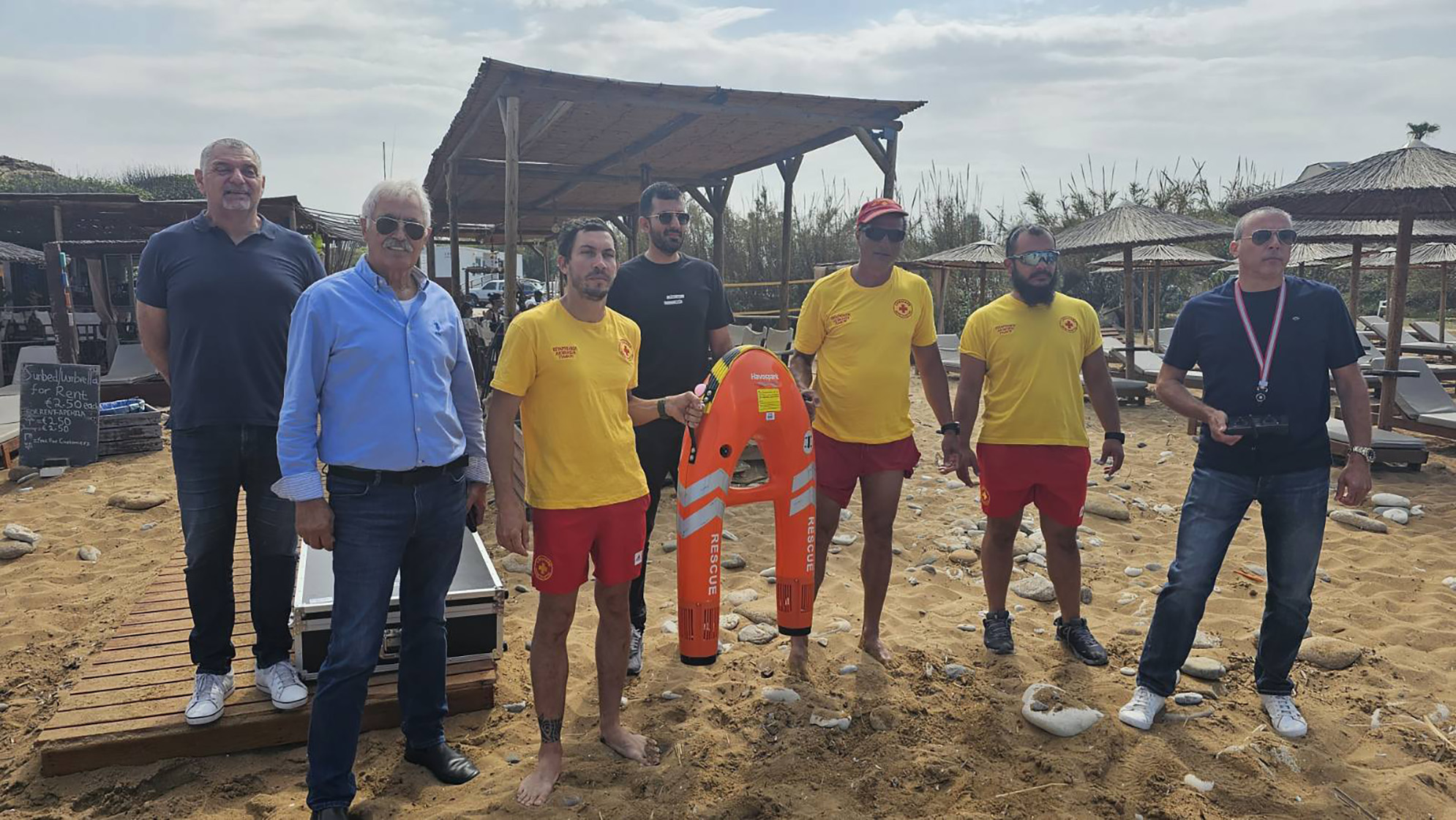Smart lifebuoys ready, state ‘needs to do its part’

The first three smart lifebuoys, donated by the Paphos Regional Board of Tourism (Etap) to assist lifeguards on Paphos’ choppy beaches, are only the beginning, but the state must do its part too, its leader said on Saturday.
“We plan on donating more, but what we want is for the state to understand that we must modernise the equipment,” Etap CEO Nasos Hadjigeorgiou told the Cyprus Mail.
Hadjigeorgiou said the lifebuoy “can replace a costly and polluting jet ski.
“So, our effort is to bring in environmentally friendly and state-of-the-art lifesaving means,” he said.
The smart lifebuoys have been imported by Etap at a cost of €5,000 each and donated to assist lifeguards at beaches with a higher need for surveillance.
“They meet all European specifications,” Hadjigeorgiou said.
The devices are environmentally friendly, electric and rechargeable, simple to operate, need minimal maintenance, have 45-minutes autonomy.

They are also “five times faster than the world aquatic champion. A lifeguard cannot get to a bather faster,” Hadjigeorgiou said.
He added that “it actually gets there faster than a jet ski, because there is minimal preparation for use.”
The smart lifebuoy is dropped in the water and remotely guided to the person in need.
“It is much like a toy in that it is remote-controlled and easy to operate.”
Lifeguards will evaluate each situation and determine whether the lifebuoy is sufficient or if they need to assist anyone who may be panicking or drowning.
“Sometimes, a person may be too tired to get back to the beach,” in which case the lifebuoy will be sent in fast on its own.
Hadjigeorgiou said that if a swimmer needs assistance, the lifeguard can use the device to get there “three times faster than swimming.”
The lifeguard will then help the person hold onto the device and accompany them back much faster than without the smart lifebuoy.
The remote-controlled lifebuoys have a range of 800m from the operator.
Hadjigeorgiou explained that if the lifebuoy goes out of range, then it can be homed by GPS and thus “it can’t get lost.”
“All you need to do after using is rinse them in freshwater. They are very low-maintenance and even the spare parts – if ever necessary – are not expensive,” he said.
So far, the remote-controlled lifebuoys have been used for training purposes.
“Fortunately, they have not been needed to save someone and I hope they never have to,” Hadjigeorgiou said.
